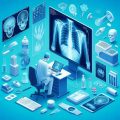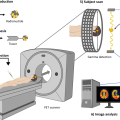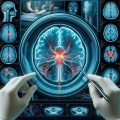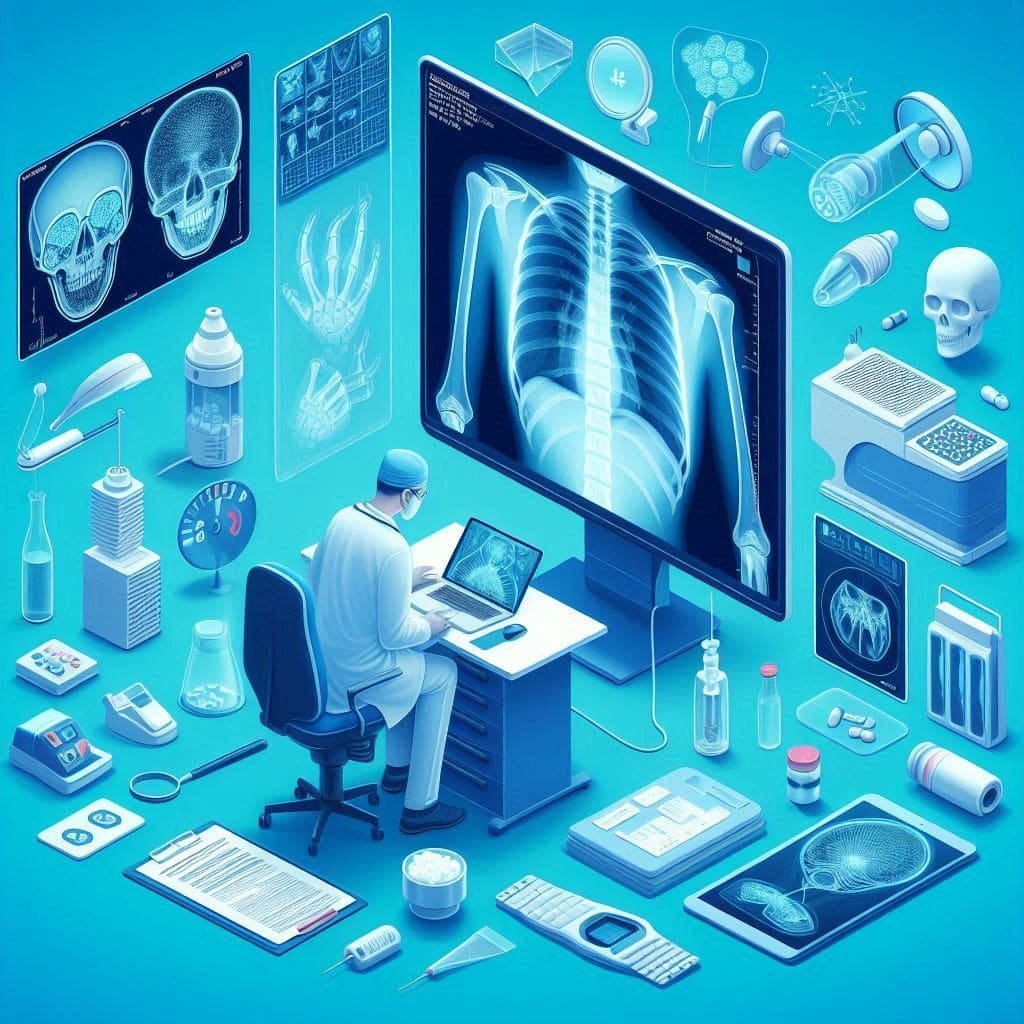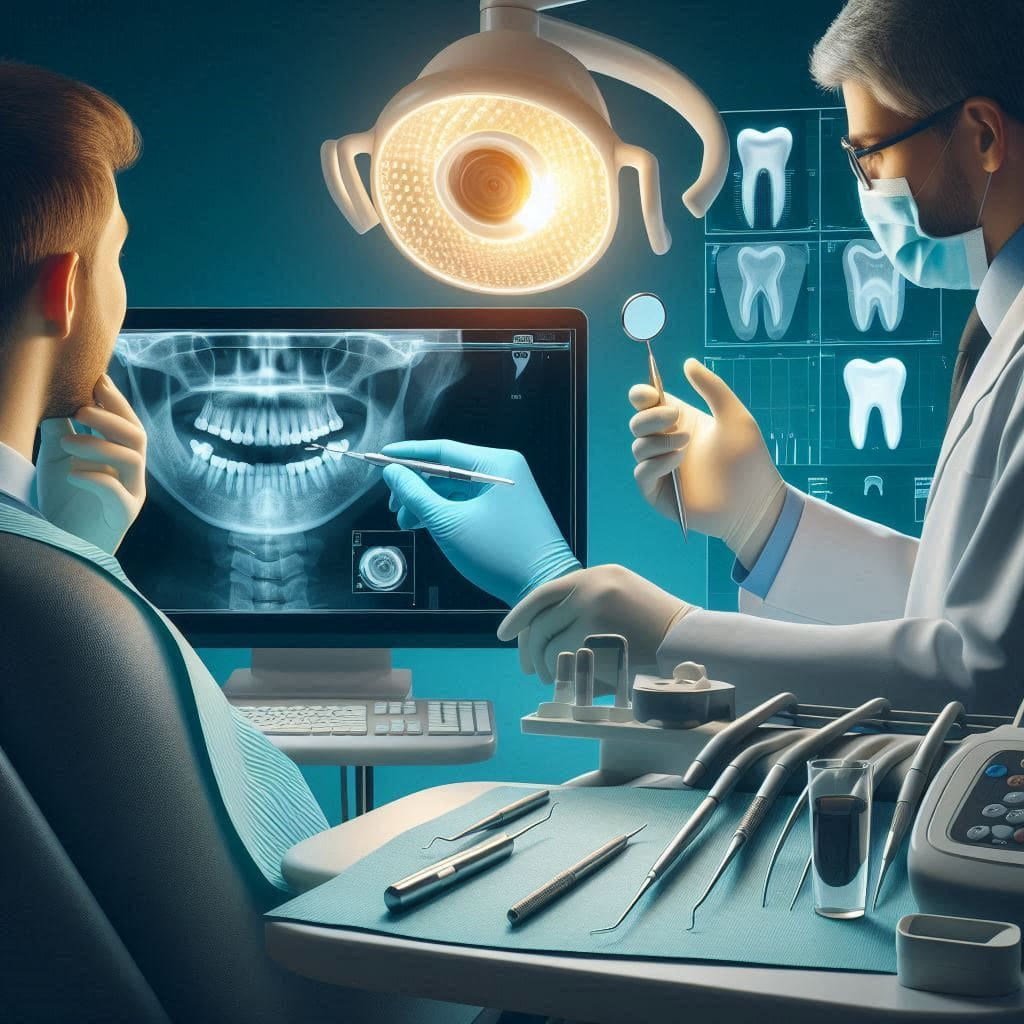
What Tests Does a Dentist Request?
What Tests Does a Dentist Request? How to Interpret Their Results?
In the world of dentistry, medical tests and examinations play a crucial role in the prevention and early diagnosis of a wide range of diseases and health conditions. These tests are essential tools that help provide comprehensive and effective healthcare to patients. At Dokki Scan, we offer a range of advanced medical tests to ensure the health of our patients’ mouths and teeth. In this article, we will discuss the importance of routine dental exams, common tests in dentistry, and how to interpret the results of these tests.
The Importance of Routine Dental Exams
Routine dental exams are not just a part of preventive care; they are a fundamental step in maintaining oral and dental health. There are several reasons why regular check-ups are necessary:
Maintaining Oral and Dental Health:
Routine exams help in the early detection of cavities, gum diseases, and other issues before they become more serious. Early intervention can maintain dental health and prevent tooth loss.
Early Detection of Health Problems:
Through regular check-ups, doctors can detect health problems in their early stages, making them easier to treat and increasing the chances of full recovery.
Prevention of Chronic Diseases Linked to Oral Health:
Oral health is closely linked to overall body health. Routine exams help prevent chronic diseases such as heart disease and diabetes, which can be exacerbated by oral problems.
Improving Quality of Life:
Maintaining oral and dental health contributes to an improved quality of life by facilitating eating, speaking, and smiling with confidence.
Common Tests in Dentistry
There are many tests and examinations that a dentist may request to evaluate oral and dental health. Among these tests are:
X-ray Analysis:
X-rays are one of the most commonly used tools in dentistry to detect problems that cannot be seen with the naked eye.
Types of X-rays:
Panoramic X-rays: Allow the doctor to see the entire mouth, including the teeth, jaws, and surrounding tissues.
Periapical X-rays: Used to obtain detailed images of a specific area of the mouth.
Digital X-rays: Considered more accurate and provide high-quality images with a lower radiation dose.
What Do X-rays Reveal?
Detect hidden tooth decay.
Show root and bone problems, such as infections and cysts.
Help diagnose impacted or misaligned teeth.
How to Interpret Their Results:
Images are analyzed by the dentist to identify any potential problems.
Results can be used to develop a customized treatment plan for each patient.
Saliva Test:
Saliva tests are used to detect a range of health issues by analyzing the components of saliva.
What Is a Saliva Test?
It is an examination that uses saliva samples to identify the presence of bacteria, viruses, and chemical compounds.
Detection of Bacterial and Viral Infections:
Can identify specific bacteria that cause tooth decay and gum diseases.
Detect viruses that may affect oral health.
Detection of Immune System Problems:
Can indicate immune disorders that affect oral health.
How to Interpret Saliva Test Results:
Results are interpreted by the dentist to determine the potential causes of health problems.
A treatment plan is developed based on the results.
Blood Tests:
Blood tests are used in dentistry to detect health problems that may affect the mouth and teeth.
Why Does a Dentist Need Blood Tests?
To determine the presence of infections or chronic diseases that may affect oral health.
Detection of Infections and Chronic Diseases:
Blood tests can indicate the presence of chronic infections, such as gum inflammation.
Help determine blood sugar levels, which is essential for diabetic patients with gum issues.
How to Interpret Blood Test Results:
Results are interpreted in collaboration with the dentist and general physician to develop a comprehensive treatment plan.
Microbial Flora Analysis:
Used to analyze the balance of bacteria in the mouth and identify potential problems.
Importance of Microbial Flora Analysis:
Helps determine the correct bacterial balance in the mouth.
Detects harmful bacteria that may cause gum diseases and tooth decay.
Detection of Microbial Balance in the Mouth:
Contributes to disease prevention by maintaining a healthy bacterial balance.
How to Interpret Microbial Flora Analysis Results:
Results are interpreted to determine the need for therapeutic interventions, such as antibiotics or changes in oral care routines.
How to Interpret Test Results
Interpreting test results is a vital part of the healthcare process in dentistry. Here is how to deal with the results:
Importance of Knowing the Results for the Doctor and the Patient:
Results help provide a comprehensive picture of oral and dental health.
Enable the doctor to develop a customized treatment plan for each patient.
How to Handle Positive and Negative Results:
If the results are positive and indicate problems, a detailed treatment plan is developed to address the issue.
If the results are negative and do not indicate problems, a preventive plan is developed to maintain oral and dental health.
Procedures Followed After Obtaining the Results:
Therapeutic procedures include the use of medications, such as antibiotics or anti-inflammatory drugs.
Positive results may require additional surgical or therapeutic procedures, such as removing damaged teeth or root canal treatment.
Follow-up appointments are scheduled to ensure the effectiveness of the treatment and monitor the development of the condition.
Services at Dokki Scan
At Dokki Scan, we are committed to providing the best healthcare services using the latest technologies and medical examinations. We offer a wide range of medical tests to ensure the health of our patients’ mouths and teeth. Our services include:
Conducting Examinations Using the Latest Technologies:
We use the latest equipment and technologies to ensure accurate and comprehensive results.
Accurate Diagnosis and Guidance:
We provide an accurate diagnosis based on test results and collaborate with doctors to offer appropriate guidance and treatment plans.
Continuous Follow-up and Care:
We offer continuous care to monitor the condition’s development and ensure the maintenance of oral and dental health.
Conclusion
Routine dental exams are an essential part of comprehensive healthcare. Through regular check-ups, early detection of health problems can be achieved, and necessary actions can be taken to maintain oral and dental health. At Dokki Scan, we are committed to providing the best healthcare services to ensure our patients’ satisfaction and safety. To maintain the health of your mouth and teeth, we recommend visiting our website at dokki-scan.com or contacting us to schedule your regular check-up. Our team of experts is ready to provide support and answer all your inquiries. At Dokki Scan, we are here to support you every step of the way towards maintaining your health and safety.
Latest Blogs
- All Posts
- Blog

